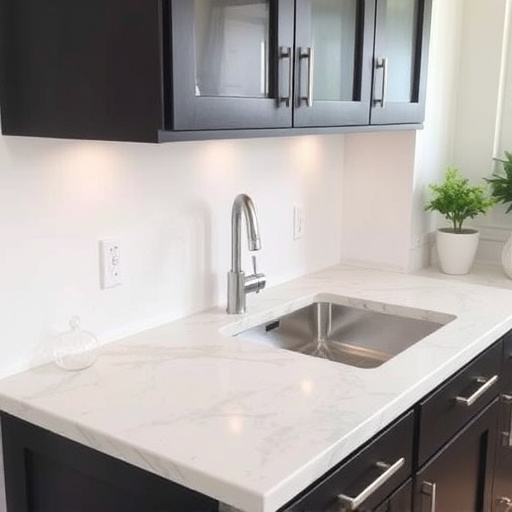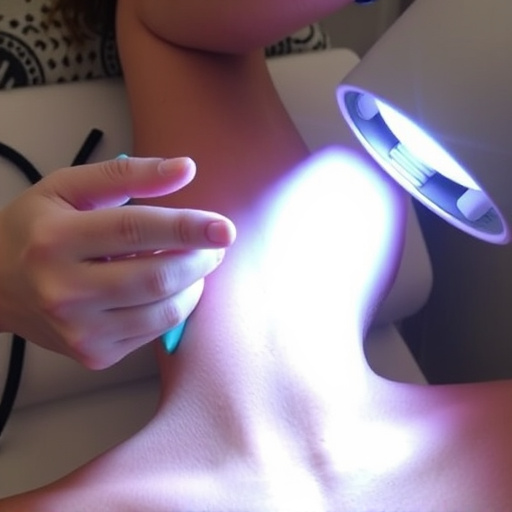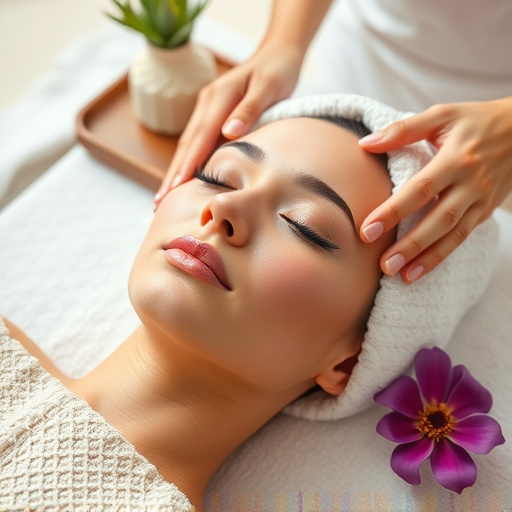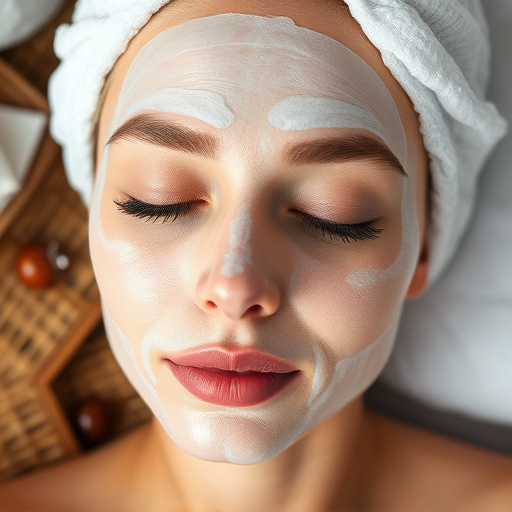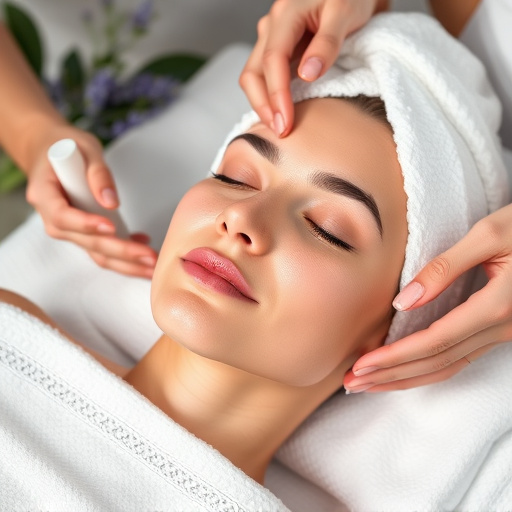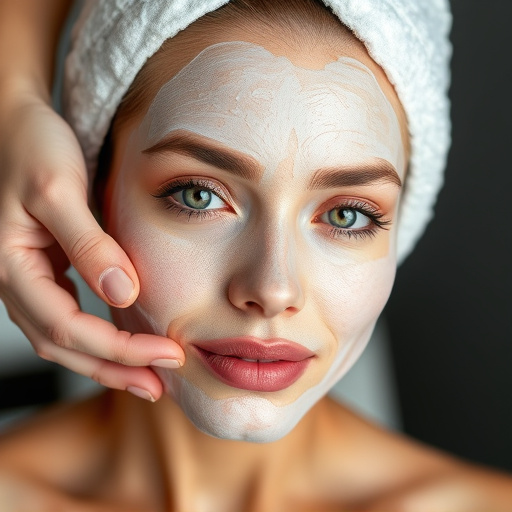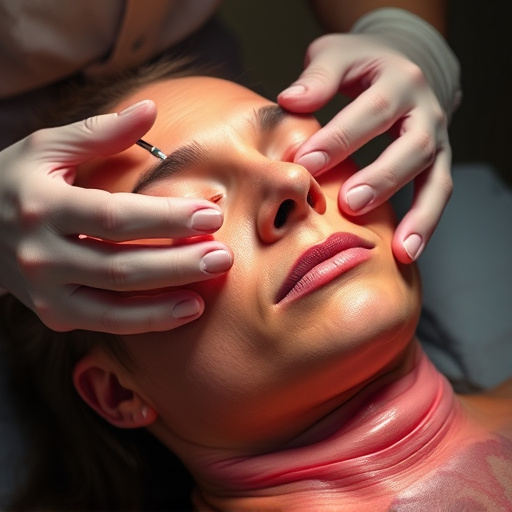Adult acne therapy involves a multi-faceted approach addressing various triggers like stress, diet, and environmental factors. Non-surgical treatments including topical retinoids and antibiotics unclog pores, while severe cases may require chemical peels or laser therapy for scarring. Evolving techniques like microneedling boost collagen production. By 2025, dermatologists are integrating holistic practices emphasizing lifestyle adjustments, natural remedies, and alternative therapies for personalized adult acne management.
In 2025, navigating adult acne treatment has evolved significantly. Beyond traditional approaches, dermatologists now recommend a multifaceted strategy for clear skin. This article delves into understanding the causes and common triggers of adult acne, exploring effective topical treatments and prescribed medications. We also examine beyond-meds solutions, including lifestyle changes and alternative therapies, to provide a comprehensive guide to adult acne therapy options backed by dermatologists.
- Understanding Adult Acne: Causes and Common Triggers
- Topical Treatments and Prescribed Medications for Effective Adult Acne Therapy
- Beyond Meds: Lifestyle Changes and Alternative Therapies Dermatologists Suggest for Clear Skin in 2025
Understanding Adult Acne: Causes and Common Triggers
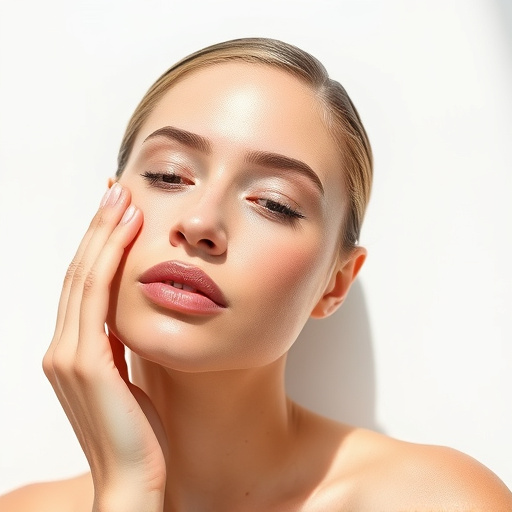
Acne isn’t just a teenager’s concern; it affects adults too. Understanding adult acne involves recognizing its diverse causes and triggers. Beyond hormonal fluctuations, which can still play a role, factors like stress, certain medications, diet, and environmental pollutants contribute to this skin condition. These influences can lead to clogged pores, inflammation, and the formation of cysts or nodules. Recognizing these triggers is crucial for selecting effective adult acne therapy options.
Non-surgical treatments, such as topical retinoids and antibiotics, are often recommended by dermatologists. They help unclog pores, reduce inflammation, and prevent future breakouts. For more severe cases, aesthetic treatments like chemical peels and laser therapy can be employed to target acne scars and improve skin texture. Pore refinement procedures, while not a cure, can also aid in managing adult acne by minimizing the appearance of enlarged pores.
Topical Treatments and Prescribed Medications for Effective Adult Acne Therapy

In the quest for achieving clear and healthy skin, adult acne therapy has evolved to offer a range of effective solutions. Topical treatments play a pivotal role in managing this condition. Over-the-counter creams containing ingredients like benzoyl peroxide and salicylic acid are commonly recommended as they help unclog pores and reduce inflammation. These gentle yet powerful agents work by eliminating excess oil and dead skin cells, which are often the root causes of acne breakouts.
Beyond topical applications, dermatologists may prescribe oral medications for more severe cases of adult acne. Antibiotics are often the first line of defense to combat bacterial infections associated with acne lesions. Additionally, prescription retinoids, derived from vitamin A, have proven effective in speeding up skin cell turnover and unclogging pores. Other innovative treatments like microneedling therapy have gained popularity for their ability to stimulate collagen production and improve overall skin health, offering a comprehensive approach to adult acne therapy.
Beyond Meds: Lifestyle Changes and Alternative Therapies Dermatologists Suggest for Clear Skin in 2025
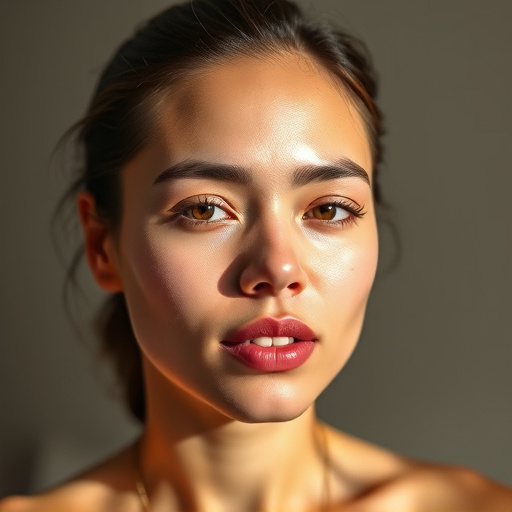
In addition to traditional adult acne therapy options like topical medications and oral antibiotics, dermatologists in 2025 are emphasizing holistic approaches for achieving clear skin. Beyond meds, lifestyle changes play a significant role in managing and preventing adult acne. This includes maintaining a balanced diet rich in antioxidants, staying hydrated, and practicing good hygiene to prevent clogging pores.
Alternative therapies like stress management techniques, regular exercise, and adequate sleep are gaining traction as essential components of personalized skincare routines. Some dermatologists also recommend natural remedies such as tea tree oil and aloe vera for their anti-inflammatory properties. Moreover, skin rejuvenation techniques like chemical peels and microdermabrasion can help exfoliate the skin, unclog pores, and promote a smoother, clearer complexion—all part of the evolving approach to adult acne therapy in 2025.
In 2025, addressing adult acne involves a multifaceted approach. By understanding the underlying causes and common triggers, individuals can effectively manage their skin through a combination of topical treatments, prescribed medications, lifestyle changes, and alternative therapies recommended by dermatologists. Embracing these diverse strategies ensures a comprehensive adult acne therapy regimen for achieving and maintaining clear, healthy skin.


